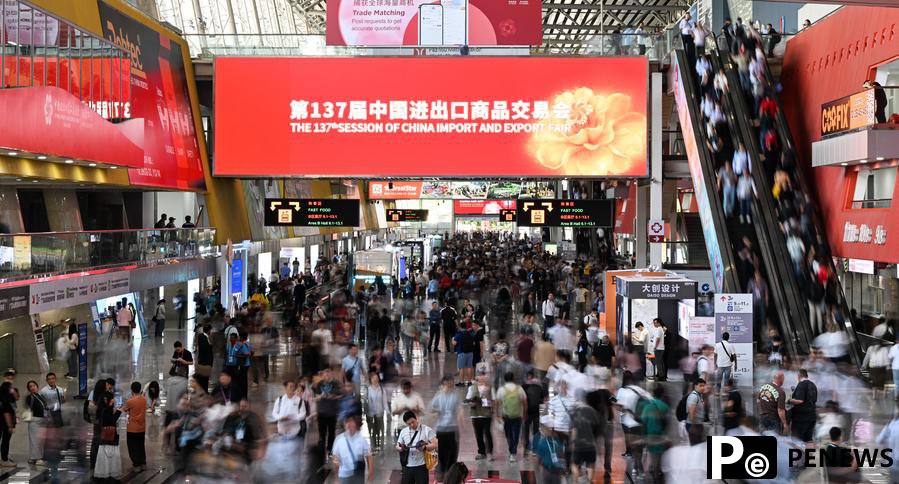Home>>
Global manufacturing PMI edges down in April, indicating downward pressure on world economy amplified by US tariffs(Global Times) 14:25, May 06, 2025
The China Federation of Logistics & Purchasing (CFLP) on Tuesday said that April's global manufacturing purchasing managers' index (PMI) remained below 50 for the second consecutive month this year, signaling manufacturing sector contraction and increasing downward pressure on the global economy.
The high tariffs imposed by the US on other economies have exacerbated the downside risks, shadowing global economy, the federation said.
The global PMI came in at 49.1 in April, down 0.5 points from March. This continued weakness in global manufacturing points to increasing pressure on the world economic growth, according to CFLP.
Regionally, the Americas' manufacturing PMI was 48.4 percent in April, down 0.5 points from the previous month, marking the third consecutive monthly decrease this year.
Asia's manufacturing PMI stood at 50 in April, exactly at the threshold dividing expansion and contraction, which is down 1.3 points from March. Growth in Asian manufacturing slowed due to the impact of US tariff hikes, the CFLP said.
Africa's manufacturing PMI was 49.5 in April, down 1.3 points from the previous month. After briefly rebounding above 50 in March, the index has returned to the contraction territory.
In Europe, the manufacturing PMI rose slightly by 0.2 points to reach 48.4. However, Europe's manufacturing sector remains in contraction, with its fragile recovery facing growing challenges from the US tariffs and geopolitical conflicts there, according to CFLP.
Meanwhile, major financial institutions have recently downgraded global economic and trade growth projections.
In its latest World Economic Outlook, the IMF revised its 2025 global growth forecast down to 2.8 percent, a 0.5 percentage-point reduction from its January estimate.
The WTO warned in its Global Trade Outlook and Statistics report that, due to the impact of US tariff policies, global merchandise trade volume in 2025 could drop by 0.2 percent, down from the long-term annual growth average of nearly 3 percent.
Analysts emphasized that, given the heightened uncertainty surrounding the global economic recovery, it is more critical than ever to stay committed to pursuing "the right course of action".
Countries worldwide should, based on mutual respect, steadfastly strengthen multilateral economic and trade cooperation, promote trade facilitation, and mitigate the negative effects of US tariffs on the global economy, according to the CFLP.
"The world today faces significant uncertainties. All countries ought to uphold free trade, defend the rules of global commerce, and safeguard the principles of world economic development," Yang Delong, chief economist at Shenzhen-based First Seafront Fund, told the Global Times on Tuesday.
Yang noted that the uncertainties, primarily stemming from the US tariff hikes, have also led to a decline in the credibility of US-related assets.
Recently, investor concerns over US' swollen government debt and its elevated trade tariffs have triggered a sell-off of US Treasury bonds. While the US dollar was once seen as a safe-haven asset, investors are now retreating from dollar-denominated assets, leading to a sharp decline in the US dollar index, said Yang.
(Web editor: Tian Yi, Zhong Wenxing)








